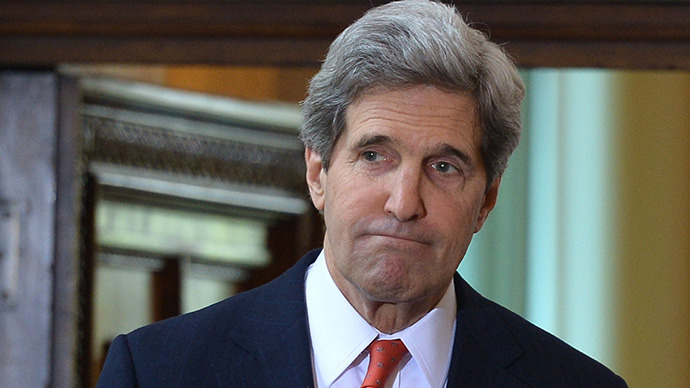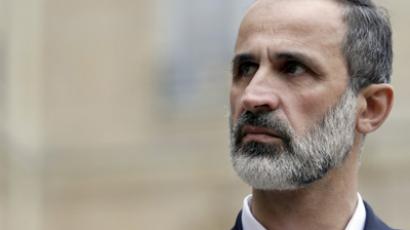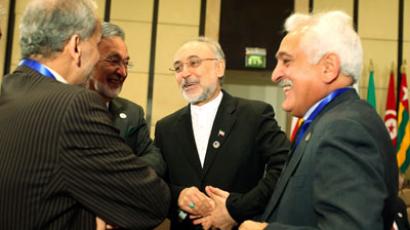US pledges $60mn in non-lethal direct aid to Syrian opposition

The US will provide the Syrian opposition with $60 million in aid, Secretary of State John Kerry announced on Thursday. The non-lethal assistance will include the delivery of food and medical supplies directly to the rebels for the first time.
"No nation, no people should live in fear of their so-called
leaders," Kerry said in a speech after attending a ‘Friends of
Syria’ meeting in Rome.
The move aims to increase pressure on Syrian President Bashar Assad
to step down, and pave the way for a democratic transition, Kerry
said, adding that the aid is intended to help the opposition govern
newly liberated areas of Syria.
"For more than a year, the United States and our partners have
called on Assad to heed the voice of the Syrian people and to halt
his war machine," Kerry said. "Instead, what we have seen is
his brutality increase."
But despite the ‘brutality’ comment, Kerry said that Washington
will not provide weapons to opposition fighters. The news may be
seen as a disappointing blow to anti-Assad forces, who have called
for Western arms.
The decision to provide aid directly to the Syrian rebels
represents a policy change within the Obama administration. Until
now, the US has never directly delivered assistance to opposition
fighters. "Given the stakes, the president will now extend food
and medical supplies to the Syrian opposition, including the
Supreme Military Council," Kerry said.

US officials said the rations and medical supplies are to be distributed only to members of the Free Syrian Army; the aid will be delivered to the rebels through their military council.
Washington will also send technical advisers to the Syrian National Coalition offices in Cairo to oversee the aid distribution. The advisers will be from non-governmental organizations and other non-profit groups.
The US has already provided $385 million in humanitarian aid to Syrian civilians and $54 million in communications equipment, medical supplies, and other non-lethal assistance to the political opposition.
Syrian opposition leader Moaz Khatib also took to the podium after the meeting, pleading directly to Assad to step down.
"Bashar Assad, you have to behave as a human being for once in your life,” Khatib said. “Enough killing, enough slaughtering, enough arresting. Bashar, you need to make one reasonable [act] in your life time to save this country."
"The regime has to go. We need to dismantle all the security apparatus," Khatib said, adding that the Syrian government should be forced to establish humanitarian corridors to allow aid to reach the areas hardest hit by violence.

In a final statement after the Rome meeting, the Friends of
Syria deplored the “unabated” arms supply to Assad, likely
referring to Russia and Iran, countries viewed as Assad’s
traditional allies.
The Thursday Friends of Syria meeting almost failed to materialize: Earlier this week, the Syrian opposition voiced frustration over the “shameful” failure of the international community to put an end to the country’s civil war by refusing to attend the talks.
The leaders finally agreed to attend, after Kerry and his British counterpart William Hague insisted the talks would discuss concrete steps forward.
Meanwhile, the European Union has amended sanctions on Syria to
permit the supply of armored vehicles, non-lethal military
equipment, and technical aid to the opposition, provided they are
intended to protect civilians.
The new sanctions exempt "non-lethal military equipment
or...equipment which might be used for internal repression,"
and "non-combat vehicles...fitting with materials to provide
ballistic protection."

The decision comes after weeks of negotiations between EU states
regarding the arms embargo on Syria. Some member nations were in
favor of easing the embargo to help rebels, while others worried
that allowing more arms into Syria could fuel the violence.
According to UN estimates, more than 70,000 Syrians have been killed in the nearly two-year-long uprising against President Assad. Some 860,000 Syrians have fled abroad, and several million others have been displaced within the country.















